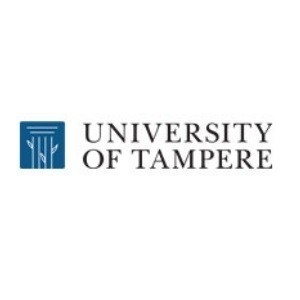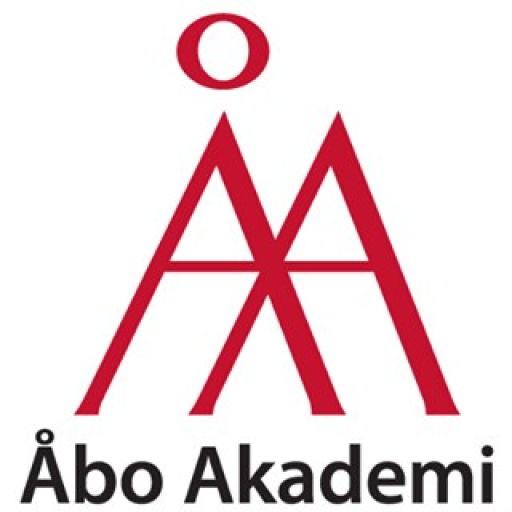Photos of university / #soasuni
Dispute and Conflict Resolution at SOAS University of London offers students a comprehensive understanding of the theories, methods, and practices involved in managing and resolving conflicts across various cultural and institutional contexts. This program is designed to equip students with the necessary skills to analyze the root causes of disputes, facilitate effective communication, and implement strategies for peaceful resolution in both local and international settings. The curriculum combines insights from law, politics, anthropology, and international relations, providing a multidisciplinary perspective on conflict dynamics and resolution techniques.
Students will engage with topics such as negotiation, mediation, arbitration, human rights, and transitional justice, gaining practical experience through simulated negotiations and case studies. The program emphasizes the importance of cultural sensitivity and ethical considerations in conflict resolution processes, preparing graduates for careers in diplomacy, international organizations, NGOs, legal consultancy, and corporate conflict management. Additionally, students will explore the role of conflict resolution in peacebuilding, development, and social justice initiatives worldwide.
The program is suitable for individuals interested in pursuing careers that require an understanding of global conflicts and effective dispute management strategies. It combines academic rigor with practical application, fostering analytical skills and intercultural competence. Throughout their studies, students will have access to SOAS's extensive network of practitioners, scholars, and institutions working in the field of conflict resolution. Graduates of the Dispute and Conflict Resolution program will be well-prepared to contribute to resolving conflicts in diverse settings, promoting peace and stability across communities, regions, and nations.
Dispute and Conflict Resolution at SOAS University of London offers students a comprehensive understanding of the theories, practices, and skills necessary to manage and resolve conflicts effectively across a wide range of contexts. The programme covers the fundamental principles of conflict analysis, negotiation, mediation, and alternative dispute resolution (ADR), preparing graduates to work in diverse fields such as international diplomacy, law, human rights, community development, and corporate conflict management. Throughout the course, students explore the social, political, economic, and cultural factors that influence conflicts and their resolution, gaining critical insights into how disputes arise and evolve in different environments. The curriculum combines interdisciplinary perspectives from politics, law, anthropology, and international relations to provide a well-rounded understanding of conflict dynamics and resolution strategies. Students will engage with case studies from around the world, participate in practical workshops, and develop essential skills in negotiation and mediation through simulated exercises. The programme also emphasizes the importance of cultural sensitivity and ethical considerations in conflict resolution practices, preparing students to operate effectively in multicultural and international settings. Graduates will be equipped to contribute to conflict prevention, peacebuilding, and restorative justice initiatives, pursuing careers within governmental and non-governmental organizations, international agencies, legal bodies, and private sector entities. The programme is designed to foster critical thinking, problem-solving abilities, and effective communication skills, enabling students to become changemakers in promoting peaceful and constructive resolutions to disputes. With its diverse and experienced faculty, the programme provides an intellectually stimulating environment that encourages scholarly inquiry and practical application. Overall, the Dispute and Conflict Resolution programme at SOAS aims to produce knowledgeable, skilled, and ethically responsible professionals committed to fostering just and sustainable peace worldwide.
achelor's Degree: The undergraduate program in Dispute and Conflict Resolution typically requires students to complete a total of 360 credits over three years. Admission generally involves meeting the university's standard entry requirements, including A-levels or equivalent qualifications, with an emphasis on critical thinking and intercultural awareness. The curriculum includes core modules focusing on the theory and practice of conflict resolution, negotiation skills, peacebuilding, and international law. Students also undertake a series of optional modules allowing specialization in areas such as media and conflict, human rights, or international organizations. Practical experience is emphasized through simulated negotiations, internships, or fieldwork, which are integral parts of the program. Assessment methods combine coursework, essays, presentations, and examinations, providing a comprehensive evaluation of students' understanding and skills. To graduate, students must achieve a minimum overall grade point average specified by the university, typically around 50-60%. There are also opportunities for research projects or dissertations in the final year, enabling students to explore specific interests within the field of dispute resolution. The program encourages interdisciplinary learning, drawing from political science, law, anthropology, and international relations, to prepare students for careers in diplomacy, international NGOs, governmental agencies, or academia.
Master's Degree: The postgraduate program at SOAS offers a Master of Arts (MA) in Dispute and Conflict Resolution that usually requires the completion of 180 credits over one year of full-time study. Entry standards include a relevant undergraduate degree, often with a minimum of a 2:1 or equivalent, and evidence of interest or experience in conflict studies or related fields. The curriculum emphasizes advanced understanding of conflict theory, negotiation strategies, peacebuilding processes, and global conflict contexts. Modules cover topics such as human rights, international law, conflict transformation, and peacekeeping. Practical components such as case study analysis, simulations, and internships are core elements, aiming to develop practical skills for professional practice. Students are assessed through a combination of coursework essays, research papers, presentations, and exams. A dissertation project is a key component, requiring independent research on a conflict-related topic. Successful completion of all assessments with the required grades leads to the awarding of the MA degree. The program prepares graduates for roles within international organizations, governmental bodies, NGOs, or further research and academic careers. It fosters interdisciplinary analysis and critical thinking, essential skills in addressing complex global conflicts.
PhD Program: The doctoral program in Dispute and Conflict Resolution typically involves a rigorous research process that requires enrolment in a PhD degree. Candidates must hold a relevant master's degree, often with outstanding academic performance, and submit a research proposal aligned with the program's research strengths. The program emphasizes original research that contributes to the theory and practice of conflict resolution. Students are expected to complete coursework in research methods and attend seminars or workshops designed to enhance their scholarly skills. Supervision is provided by faculty members with expertise in conflict studies, global peacebuilding, and related fields. The doctoral journey culminates in the submission of a thesis that demonstrates significant contribution to academic knowledge and practical understanding of conflict issues. Defense of the thesis in a viva voce is required for completion. The program duration is typically three to four years full-time, with part-time options available. Graduates are prepared for careers in academia, policy analysis, international diplomacy, or consultancy. The program fosters critical analytical skills, methodological rigor, and a deep understanding of conflict dynamics in diverse contexts.
£16,175 per year for full-time international students and £11,950 per year for full-time home students. Scholarships and bursaries may be available to assist with tuition fees. Students are encouraged to seek external funding opportunities, including government grants, loans, and private sponsorships, to support their studies. The university offers various funding options, such as the SOAS Graduate Scholarship for outstanding applicants, which can significantly offset costs. Students should also consider part-time work opportunities on or near campus to help cover living expenses, following UK visa regulations for international students. Cost of living in London can vary, with accommodation, food, transportation, and personal expenses contributing to the overall budget. The university provides detailed guidance and support on budgeting and financial planning, including information about external funding sources and practical tips for managing expenses during the course. International students should also account for additional costs such as health insurance, visa fees, and study materials. The program does not specify a fixed fee structure beyond the basic tuition rates, but students are advised to regularly check the university's official website for updates on tuition fees and available financial aid. In addition, students can explore student loan programs and external scholarships offered by governmental and non-profit organizations dedicated to supporting students in conflict and dispute resolution fields. Financial assistance programs may vary by year and applicant merit, so early application and consultation with the university's financial aid office are recommended. The university emphasizes equitable access to education and provides various support mechanisms to ensure students can focus on their academic and professional development without excessive financial strain. Overall, prospective students should plan a comprehensive budget that includes tuition, accommodation, living costs, insurance, and miscellaneous expenses, and actively seek financial support options to make their studies affordable.
The DISPUTE AND CONFLICT RESOLUTION program at SOAS University of London offers students a comprehensive understanding of the theories, practices, and frameworks involved in managing and resolving disputes across a variety of contexts. This program is designed to equip students with critical analytical skills, practical tools, and a deep insight into the cultural, social, political, and legal dimensions of dispute resolution processes globally. Students will engage with topics such as negotiation, mediation, arbitration, conflict management, peacebuilding, and the role of international institutions in addressing conflicts. The curriculum combines interdisciplinary approaches drawn from law, political science, anthropology, and international relations, providing a holistic perspective on conflict dynamics and resolution strategies.
Students have opportunities to study both contemporary issues and historical conflicts, gaining an understanding of how different cultural and legal systems impact dispute resolution practices. The program emphasizes practical skills through simulations, workshops, and case studies, preparing graduates for careers in international organizations, NGOs, government agencies, the private sector, and conflict zones. Research opportunities and fieldwork components are integrated into the course, encouraging students to apply their knowledge in real-world settings. The program also benefits from SOAS’s diverse faculty, many of whom are leading experts and practitioners in the field of conflict and dispute resolution. Graduates of the program are well-equipped to pursue further academic research or to assume roles that require expertise in managing disputes, fostering dialogue, and building peace across various sectors and regions.









